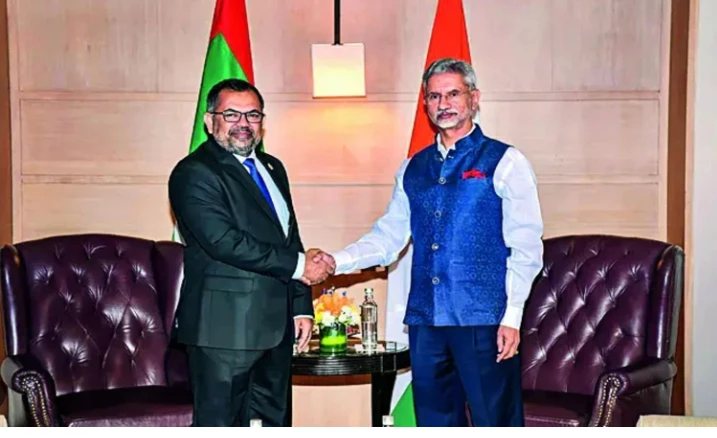India and Maldives look to reset ties after troops expelled

Stay tuned with 24 News HD Android App

India's foreign minister has called the Maldives a "priority" for New Delhi on his first trip to the archipelago nation since its pro-China president expelled Indian troops.
Subrahmanyam Jaishankar said late Friday he was in the Maldives to "take stock of our defence and security engagement", months after President Mohamed Muizzu's administration signed a military assistance pact with Beijing.
Known as a luxury holiday destination with pristine white sand beaches and secluded resorts, the atoll nation has also become a geopolitical hotspot.
India is suspicious of China's growing presence in the Indian Ocean, and Male's military deal with Beijing came as Muizzu ordered a garrison of Indian soldiers stationed in the Maldives to assist with maritime patrols to leave.
Jaishankar, who will also meet Muizzu, said he wanted to highlight India's "continued support to Maldives in its quest for progress and prosperity".
Global east-west shipping lanes pass the nation's chain of 1,192 tiny coral islands, stretching around 800 kilometres (500 miles) across the equator.
India's government has traditionally considered the Maldives, home to around half a million people, within its sphere of influence.
"For India, neighbourhood is a priority and, in the neighbourhood, Maldives is a priority", Jaishankar said in a speech Friday.
Male's foreign minister Moosa Zameer called India "one of our closest friends", in a statement.
Zameer said the two countries had agreed to strengthen economic ties, saying Muizzu had asked to "begin negotiations" on a free trade agreement with New Delhi.
Defence links were also discussed, including "continuing joint exercises and expanding training opportunities for officers", he added.
In June, Muizzu visited New Delhi for Narendra Modi's inauguration as prime minister.
Muizzu's election successes hinged on a sustained campaign against India's outsized political and economic clout in the Maldives.
Its influence has been a periodic source of resentment in the Muslim-majority nation.
